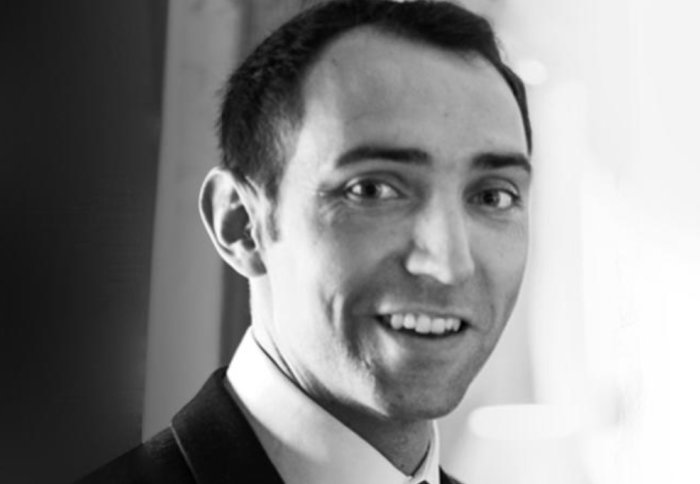Dr Pearson-Stuttard appointed Vice Chair of the Royal Society for Public Health
by Jack Stewart

Dr Jonathan Pearson-Stuttard has been appointed Vice Chair of the Council of the Royal Society for Public Health.
The Royal Society for Public Health is an independent, multi-disciplinary charity which aims to inform policy and practice, working to educate, empower and support communities and individuals to live healthily. Its vision is that everyone has the opportunity to optimise their health and wellbeing.
I sat down with Jonathan to discuss his work and his appointment to the Royal Society for Public Health.
Can you tell us a bit about your background and current research?
"I trained in Oxford and stayed in Oxfordshire for my first few years of clinical work before moving to London for my public health training. I have been fortunate to have clinical-academic roles throughout my training - NIHR fellowships in Oxford and Imperial and am now in my second year of my Wellcome Trust Clinical Research Fellowship. Throughout this period I have really enjoyed using research to answer some of the big public health issues - using data to generate information that can inform action, whether modelling potential food policies or estimating changes in patterns of morbidity in those with chronic conditions, is what really interests me.
"My current research with Professor Ed Gregg and Professor Majid Ezzati is focused on using large datasets to estimate trends in mortality and morbidity in those with diabetes. This population is living longer, but often with increasing long term conditions, much broader than the ‘traditional’ vascular complications; understanding these trends and patterns across populations could have big implications for preventive and clinical approaches to enable these patients to live well for longer."
What excites you about your appointment as Vice Chair of the Royal Society for Public Health?
"It is a real honour to be appointed Vice-Chair of the RSPH at what is such an important time for public health. The RSPH team continue to adopt innovative and collaborative approaches to address the leading health issues and have been a leading voice across public health for some time with a wealth of reports and policy proposals across the full spectrum of public health. Their work has had real impact on policy and the public’s health - I am looking forward to supporting this work at a time when public health has such a vital role during and rebuilding after the pandemic.
"The Covid-19 pandemic has already had huge impacts on our health. Our group has estimated there to have been more than 50,000 excess deaths during this period, with one in four not formally due to Covid-19. The full effects on the public’s health of the pandemic, including indirect effects of the health system pivoting to tackle it and the health-related social and economic effects, will only become clear in the coming weeks and months. We have already seen large inequalities in deaths from Covid-19 - across deprivation group, ethnicity and geography; these longer term effects of the pandemic risk worsening existing inequalities for decades to come. RSPH have an exciting programme of work that will play a vital role in shaping the wider response to Covid-19 and tackling the entrenched inequalities that the pandemic have laid bare."
What do you think are the biggest challenges ahead in public health?
"There are a number of big challenges for public health; childhood obesity, increasing mental ill-health across communities and the rise of multi morbidity resulting in a health system that no longer reflects the health and care needs of our population. Inequalities in health however, have persisted and in some instances worsened. As we enter the next phase of the Covid-19 pandemic, inequalities are likely to worsen unless drastic measures are taken. The impact of the pandemic on healthcare pathways for chronic diseases such as cancer and diabetes will become more clear in coming weeks and months; as with the social and economic determinants of health, it is likely that the most derived communities will be hardest hit. We have diagnosed the problem of health inequalities in great detail, public health must now lead in finding and getting solutions into practice at national and local level. "
Do you have any advice to anyone starting out a career in public health?
"Public health is such a broad profession with so many interesting areas. I enjoyed spending time with colleagues across the full spectrum of public health to find what it is that really excited me. Working in a stimulating environment with colleagues who enthuse and challenge you to think differently is so important to develop skills throughout your career but also makes for a fun working day! Finally, perhaps as important in our socially distanced, remote-working times as ever (!) - never feel shy to ask for help, thoughts or advice along the way. Mentors (formal or informal) are so useful in helping to bounce ideas off and navigate through your career. I have been very fortunate to have several mentors and colleagues here at Imperial and the wider public health community."
Read the announcement on the Royal Society for Public Health
Article text (excluding photos or graphics) © Imperial College London.
Photos and graphics subject to third party copyright used with permission or © Imperial College London.
Reporter
Jack Stewart
School of Public Health